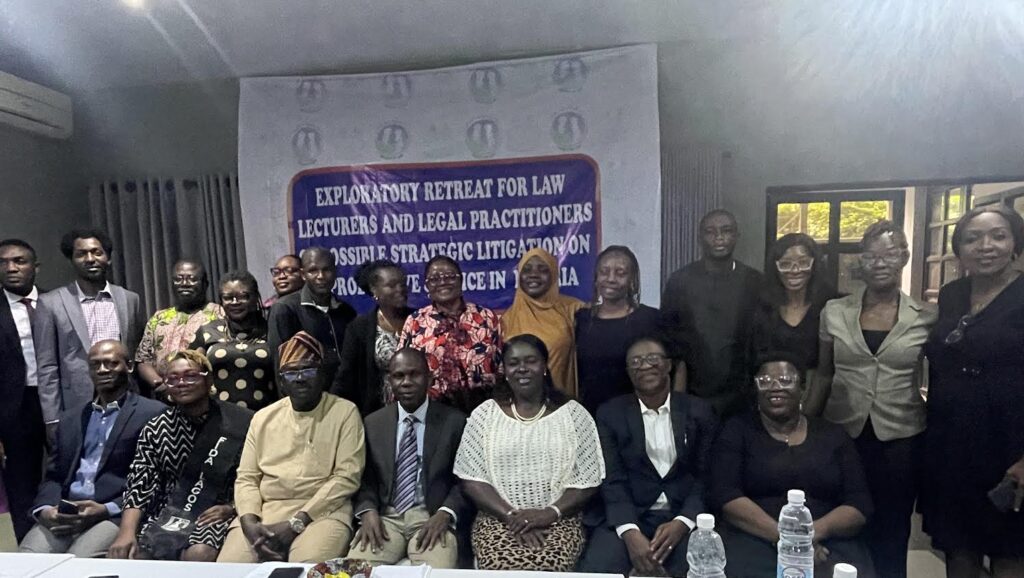
In addition to the numerous challenges confronting today’s parents, they now also have to contend with the issue of their children’s security both at home and elsewhere.
Due to the prevailing economic and social conditions, many parents now engage the services of house helps and such other aides to cater to their needs and that of their children.
Expectedly and like everything in life, however, this comes with its positive and negative aspects. For one, not everyone takes the time to check out the background and personality of intended domestic staff, which sometimes makes it all the more easy for dubious characters, parading as helpers, to penetrate homes and carry out nefarious activities.
Since children’s safety is the central motive for hiring housemaids in the first place, would it not be tantamount to shooting oneself in the leg, if through negligence parents unwittingly pave the way for evil to invade their homes, thereby harming their children? As the society becomes more insecure, it is obvious that parents need to pay more attention to this area so as to curb criminal attempts on the home front.
Parents cannot do too much in this regard, says Agwe Joseph, assistant head teacher and a co-educationist at NAFRCOWA Nursery and Primary School, Oshodi, who is saddened by the turn of events, which is making parents’ job of raising their children tougher these days. “Before now, some of these vices were not so pronounced and so, parents could have rest of mind knowing their children were in safe hands, when they were not at home.
It is, however, unfortunate that we have all these terrible things happening in our society today and they are even becoming so rampant. “I believe that many parents would have loved to be there for their children, as they grow up.
But because of their busy schedule and the nature of their jobs, parents are only trying in their own little way to ensure that their children are safe and not feel their absence when they are not around. This is why they seek for alternative in caring for their children.
So, it is all the more pathetic that these ugly things are happening and the children are mostly at the receiving ends,” he says. Prof. Badru Fatai Adesina, lecturer at the Department of Sociology, University of Lagos, would like to look at the problem from another angle.
“Family members are the agents of socialisation, which makes the family a very important unit in the society. So, when parents are not there to properly socialise and raise their children, then it goes without saying that there will be some sort of instability in the children”. In his view, a successful marriage is a precursor to a successful family and society.
As the family represents the society, Adesina says parents, as a matter of course, have to find a way to play their principal role of raising proper children and should try as much as possible not to leave such in the hands of others.
“Parenting is a social responsibility of both the father and mother. It shouldn’t be left to the father or mother alone. The father, as the breadwinner of the family, should play the role of a care getter, while the mother plays the role of a caregiver.
But when any of the parents lacks or fails to properly discharge his/her duties, then the children will be in problem. Whatever happens to either of the two is bound to reflect seriously in the lives of their children.
“It is imperative that parents do all within their power and means to ensure that their children get the proper care and upbringing. The reward and benefit to all concerned cannot be quantified. Daily, researches are coming up with different findings, which all point to the fact that many problems faced by people in their adult lives are traceable to their faulty upbringing,” he explains.
But in this age of career parents, what can be done to bring about a balance so that all aspects are effectively handled? “In the situation where parents cannot be fully there for their children, then they should endeavour to ensure that such children are kept with people that can actually take good care of them, while the parents go about their daily activities.
That one has a child should not impede him/her from working or carrying out one’s daily activities,” he says. Dr. Olusegun Temilola, a lecturer also at the Sociology Department, University of Lagos, says in the face of this latest challenge, organisations can come to parents and their children’s aid by establishing crèches, where babies can be kept when their parents are at work.
This serves the dual purpose of putting the parent’s mind at rest, which translates to more productive hours to the advantage of the organisation.
It’s a win-win situation, where the child also benefits. “Where I work, parents are permitted to come with their kids, drop them and in the afternoon, they can go and check on them or pick them up if they are through with work.
But professionally speaking, if you have your social networks around you, which comprise your parents, aunties or uncles that are less busy, you can entrust the care of your child to them, while you are at work or outside the home.
“I remember when I had my first child, my mother-in-law stayed with us for a very long time. And anytime she had to go, my mother stepped in. We had to continue like that because both my wife and I work, and we cannot go out with our child.
This is a situation faced by most parents working in Lagos,” he says. Since parents have need of services provided by housemaids, what measures can be taken to ensure that all is well with their children and the home generally? Adesina says there is no problem without a solution.
All that is needed is paying more attention to the kind of characters being employed as housemaids by parents. “It is necessary that parents take time out of their busy schedule to do a thorough background check on the caregiver handling their children, when they are not around.
This is very important and people should refrain from doing things on the face level. They should gather adequate information of where the caregiver is coming from and get acquainted with whosoever is connecting them together.
“With the spate of kidnapping going on in the society now, I believe that parents should have learnt their lesson and take measures that will ensure their children’s safety.
But just because all this is happening, one can’t say that parents should not leave their children to alternative caregivers. Parents have the responsibility to evaluate their children and the nanny and encourage the former to report whatever happens when they are not around.
That is in the case of older children that can express themselves. “Parents should also note that the caregiver or the nanny needs care too and it is only what s/he has that s/he can give.
When parents maltreat the nanny, she is likely to transfer the aggression unto the children who are innocent,” he says. And if parents must put their children in childcare service and facilities, they should go for the reliable ones, which though can be expensive.
“The woman in charge of the childcare, where I take my little children is a social worker. She is trained and also a nurse, so she has that professional training and background.
Those supporting her are full-time married women, who are busy and their husbands don’t want them to work. So, they dedicate their time to taking good care of the children because they are also mothers.
“I know that in some churches there is adequate security and care for the children, especially where they have kiddies section. So, if there should be a case of a missing child in a church, then the child’s teachers were not careful enough, because it is possible for a stranger pretending to be family to just walk in and pick the child.
And so, it is necessary for the teachers to know the parents of every kid,” he explains. Temilola urges parents to try and read materials on how to take good care of their children, no matter how busy they may be.
This is particularly necessary to prevent the situation where their children become total strangers, unable to connect or interact meaningfully with their parents.
This can be done by parents getting involved in their children’s school activities and whatever else pertains to the children. Mrs. Veronica Obinyan, Proprietress, Jaimurie Nursery and Primary school, Ire-Akari Estate Road, Lagos also echoes Adesina’s sentiments that gathering necessary information on the would-be caregiver is the key.
“If parents need the services of a help, it is mandatory first of all that they find out the nanny’s background. They should also get people who know the person for further information on the nanny.
They should ensure they don’t just leave their children alone with the nanny until investigations have been properly conducted. “Also, in our homes, we should ensure that the children are shielded from unnecessary socialisation with others.
This is because children see everybody as an uncle or an aunty. So, it is not advisable that the children be allowed to mingle freely with everybody that comes to the house. There should be some caution.
Parents should be more vigilant as to who they leave their children with.” On their part, she says schools can guarantee their pupils’ safety after closing by ensuring that the parents come themselves to pick their children.
“In our school, we have identity cards, which we give to the children and whenever parents are unable to come, they must give these cards to whoever they are sending and even when such comes, we still verify from our contact records.
We call the parent and as soon as it is confirmed, we release the child to the person,” she says. Obinyan also has a word of caution for parents that are fond of sending okada riders, cab or keke drivers to pick up their children and wards: they should desist from doing so.
“We have been telling our parents that they need to be very careful because we have heard of stories of people falling prey to such people. A particular case was that of an okada rider, who was always picking some children.
One day, he went and told the parents he was relocating and that that would be his last day of service to them. Unfortunately, the parents failed to inform the school about the development.
And so, the following day, he went as usual to the school to pick the children and went away with them. “This tells parents to always ensure they inform their children’s school management whenever there are any changes in the arrangement of picking their children. They should alert the school and not do so haphazardly like the parent cited above.
Fortunately, they were able to recover those children because she swung into action immediately.” In the same vein, she frowns on the idea of parents instructing children to take their younger ones home.
“Can you imagine a situation, whereby a six-year-old child is mandated to bring home his/her three-year-old sibling? Personally, I think they are all still babies and parents should be very conscious of this fact, because these children might have to walk through lonely paths home.”










